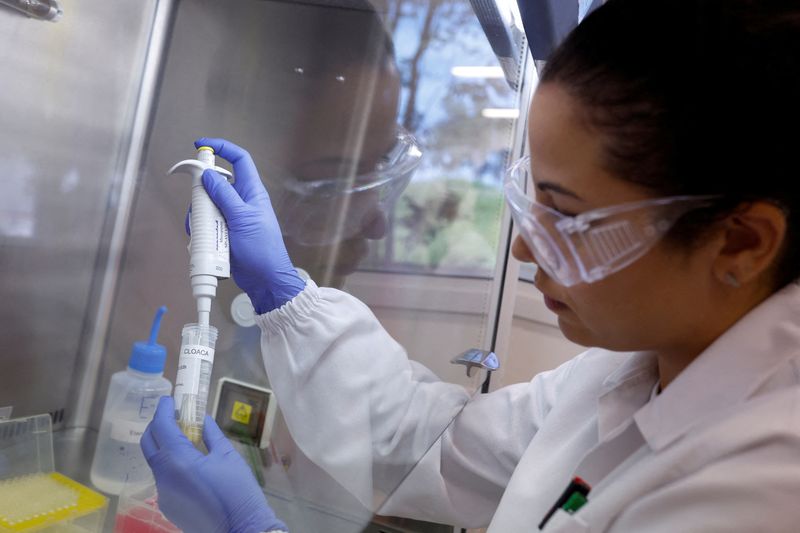Factbox: Brazil’s First Commercial Bird Flu Case Triggers China’s Poultry Import Ban
May 16, 2025 – São Paulo, Brazil
Outbreak Confirmation
- Date: May 16, 2025
- Location: Montenegro city, Rio Grande do Sul, Brazil’s third-largest poultry-exporting state (16% of national exports).
- Details: Brazil’s Agriculture Ministry confirmed the first case of highly pathogenic avian influenza (HPAI) on a commercial poultry farm, marking the country’s first commercial outbreak after 48 wild bird cases since May 2023.
- Source: Reuters, Brazilian Association of Animal Protein (ABPA).
- Containment: The ministry is monitoring a 10-km radius around the outbreak site, with no additional commercial cases reported as of May 16. An emergency operations center coordinates national response.
China’s Import Ban
- Effective: May 16, 2025, for 60 days, per Agriculture Minister Carlos Fávaro.
- Scope: Total suspension of Brazilian poultry imports to China, Brazil’s top chicken buyer (111,700 tons in Jan–Feb 2023).
- Rationale: A 2004 bilateral sanitary protocol requires Brazil to notify Beijing of epidemic diseases, triggering temporary national bans for HPAI in commercial flocks.
- Potential Relief: Fávaro indicated China could lift the ban early if the outbreak is contained, with no impact on Brazilian chicken already in transit to other countries.
- Source: CNN Brasil, Reuters, X posts by @vmartinnss and @DDFalpha.
Brazil’s Poultry Industry
- Export Volume: 5.138 million metric tons in 2023, valued at $10 billion in 2024, representing 35% of global chicken trade.
- Key Players: BRF SA (world’s largest chicken exporter) and JBS SA, shipping to 150 countries, including Japan, Saudi Arabia, South Africa, and the UAE.
- Biosecurity: Brazil avoided commercial outbreaks until 2025 through robust measures like drone patrols, farm visit bans, and event suspensions, per Poultry World.
- Impact: The ban threatens revenue, especially in Rio Grande do Sul, though revised trade accords with 70% of partners (since 2021) may limit bans to regional zones for other markets.
Global Context
- HPAI Spread: Since 2022, bird flu has killed 170 million poultry in the U.S. and millions in Europe, triggering trade bans (e.g., China’s ban on 40 U.S. states).
- Trade Precedents: Japan halted poultry imports from Brazil’s Espírito Santo in 2023 after a non-commercial outbreak, despite World Organization for Animal Health (WOAH) guidelines against bans for wild bird cases.
- Human Risk: HPAI rarely infects humans (70 U.S. cases since 2024, mostly farmworkers), and poultry consumption remains safe, per Brazil’s Agriculture Ministry.
Market and Industry Response
- Stock Impact: BRF SA shares, up 3.6% before the 2023 wild bird emergency, fell 0.5% after, indicating market sensitivity. No 2025 stock data reported yet.
- Industry Outlook: ABPA’s Ricardo Santin emphasized containment to avoid broader bans, noting WOAH guidelines allow exports from unaffected zones. @naomiblohm on X highlighted the 60-day China ban’s immediate trade impact.
- Other Markets: Japan, UAE, and South Africa may impose restrictions, though Fávaro assured ongoing talks to maintain trade.
Next Steps
- Surveillance: Intensified testing within 10-km radius and nationwide wild bird monitoring to prevent further commercial spread.
- Diplomacy: Brazil is negotiating with China for an early ban lift and reassuring other importers (e.g., Japan, EU) to limit restrictions to Rio Grande do Sul.
- Consumer Safety: The ministry reiterated that inspected poultry products pose no consumption risk, aiming to stabilize domestic and global confidence.
Sources: Reuters, Poultry World, VOA News, Al Jazeera, posts on X
